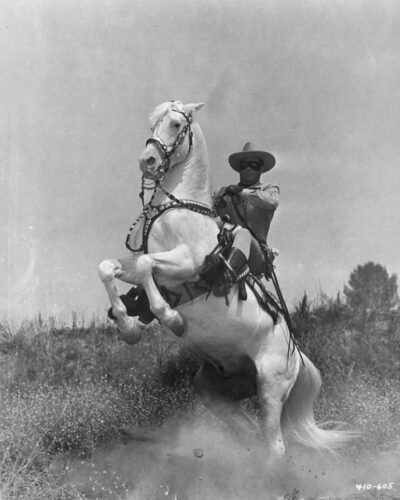
We hear a lot these days about limiting beliefs and how they can control our future success. Author Jack Canfield says:
All too often we’re filled with negative and limiting beliefs. We’re filled with doubt. We’re filled with guilt or with a sense of unworthiness. We have a lot of assumptions about the way the world is that are actually wrong.
We can fall into the trap of repeating these beliefs and staying stuck. For example, have you ever gone through something and thought:
Hmmm, I think I’ve been on this same path before.
I’m reminded of those old Westerns where the posse rides past the same rock at least 3 times. Remember those?
Here’s the truth, unless we can move past those limiting beliefs, we’re going to ride that same tired horse around the same old rock. I’m pretty sure he’s sick of it, just like you are. Can you hear his internal conversation?
Could we try something different, Mr. Lone Ranger?
Many people are passionate, but because of their limiting beliefs about who they are and what they can do, they never take actions that could make their dream a reality. ~ Tony Robbins
5 Limiting Beliefs Keeping You on the Same Old Trail
• I’m not ______X enough to do this.
• I don’t have time/money/skill to write my story.
• I’ll do this someday.
• My story isn’t worth sharing.
• I can’t finish this project.
There are many more limiting beliefs hiding behind that big rock, waiting to pop up and whisper lies to you from a smoking 6 gun. They only have the power you give them.
Here’s the truth. You have all you need to make sharing your story a reality. You can try something different and move past your limiting beliefs about your story, its value, and your ability to tell it in an interesting way.
Writing or recording your story for a few minutes on a regular basis adds up. Just like every step taken gets you further down the trail and closer to your goal. Give your horse and yourself some new scenery. You’ll build momentum and appreciate the variety.
Words are free, and I bet you have paper and pencil or a computer or phone. That’s all you need to get them committed in a permanent form you can work with. Start now, with what you have. It’s enough to begin moving.
“Somedays” have a way of evaporating like a mirage on a desert highway. How many times have you used this excuse? And how has that worked? Remember that old saying,
“The best time to plant a tree was 20 years ago. The second best time is now.”
Begin talking to yourself differently. You have the stories, memories, and experiences stored in your heart and soul. They have shaped you into who you are today, a person of great value. What you’ve learned is worth sharing with others.
In fact, you’re probably already sharing your stories with others as you meet with friends and family.
It doesn’t matter if you don’t know where to begin or have started and haven’t finished. Tickle that horse’s side with your boot, give him an air kiss smooch, “C’mon boy, let’s go,” and take a different trail. This time, you’ve got a map, a guide, and someone to ride the trail with you.
Giddyup, let’s go!
You are capable of writing your story–and finishing it! You can do this and it will be ok. So, get out of your own way, ask for help if you need it, and begin. Your story has the power to inspire others.
Tools for your memoir writing saddlebag:
Tell Your Story: 10 Tips and Techniques to Write Your Memoir (in eBook and print)
My Family My Heart Journal with Prompts
Personal History Writing Bundle
(Photo courtesy Wikimedia Commons: Clayton Moore as the Lone Ranger and Silver.
7 March 1956)
